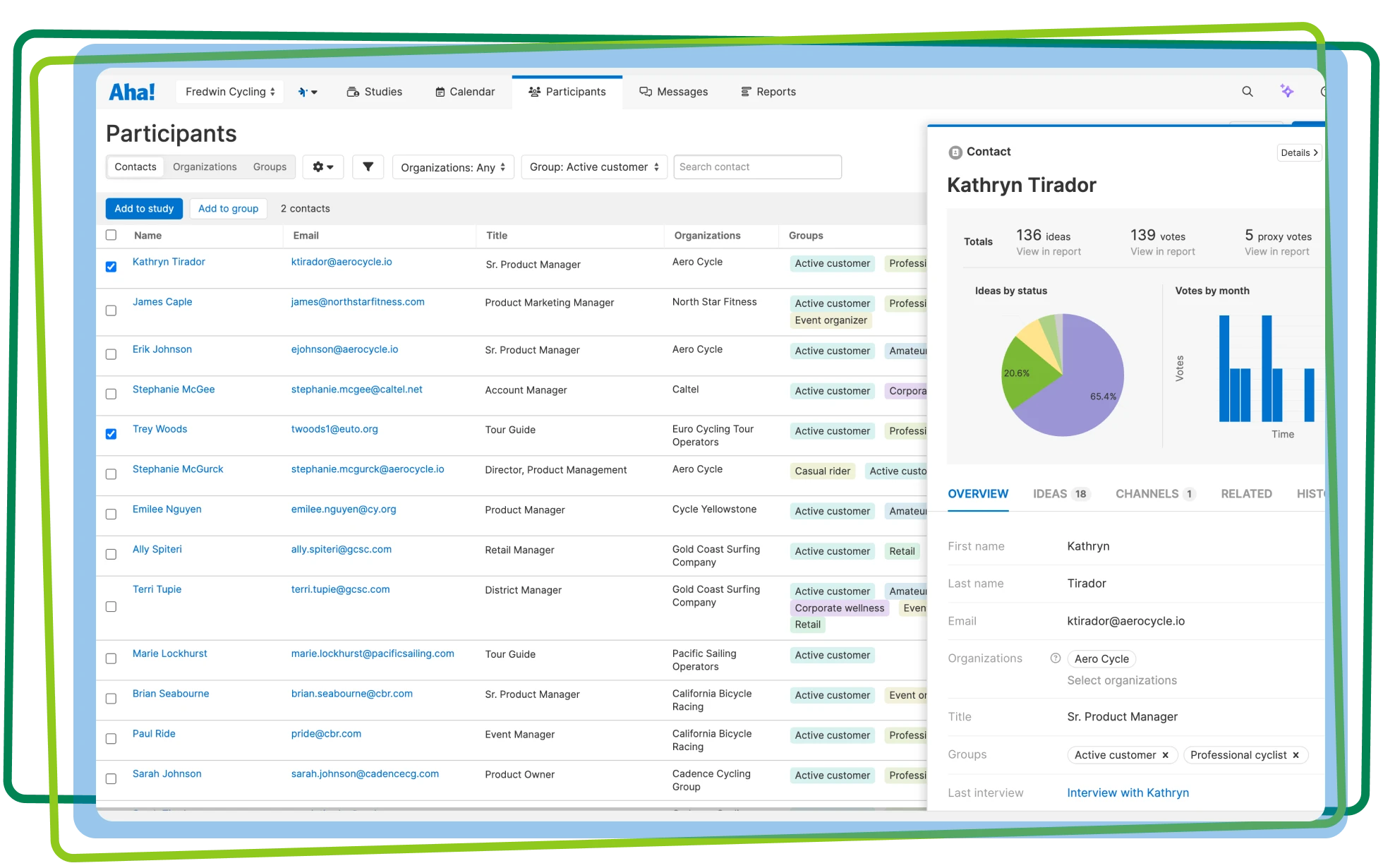

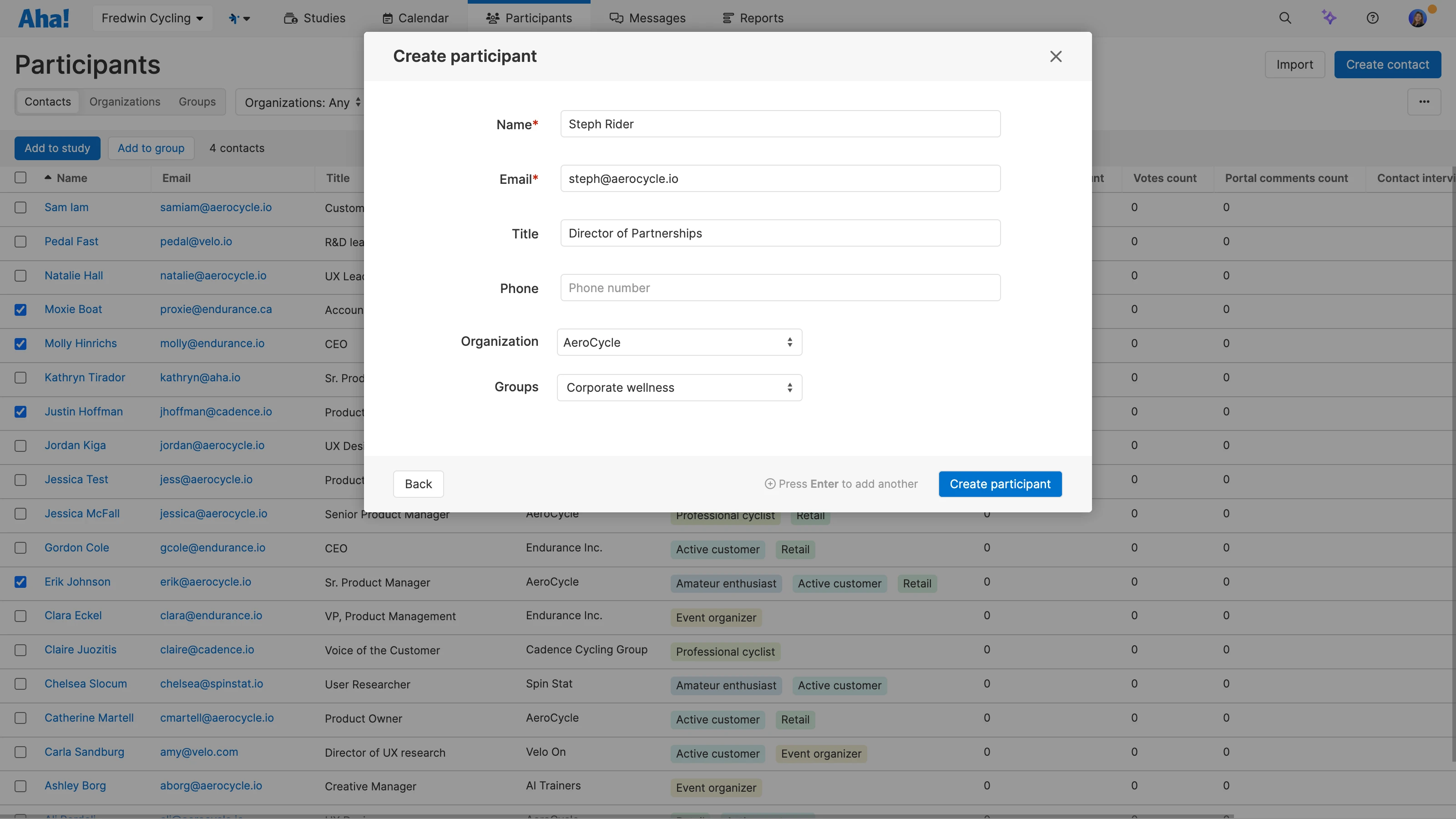
Establish a research CRM that the product team owns and manages. Add unlimited contacts — upload from a CSV file or sync with other systems, like your ideas portal or Salesforce. Organize contacts by company, group everything with labels, and use custom fields to capture information about each person.
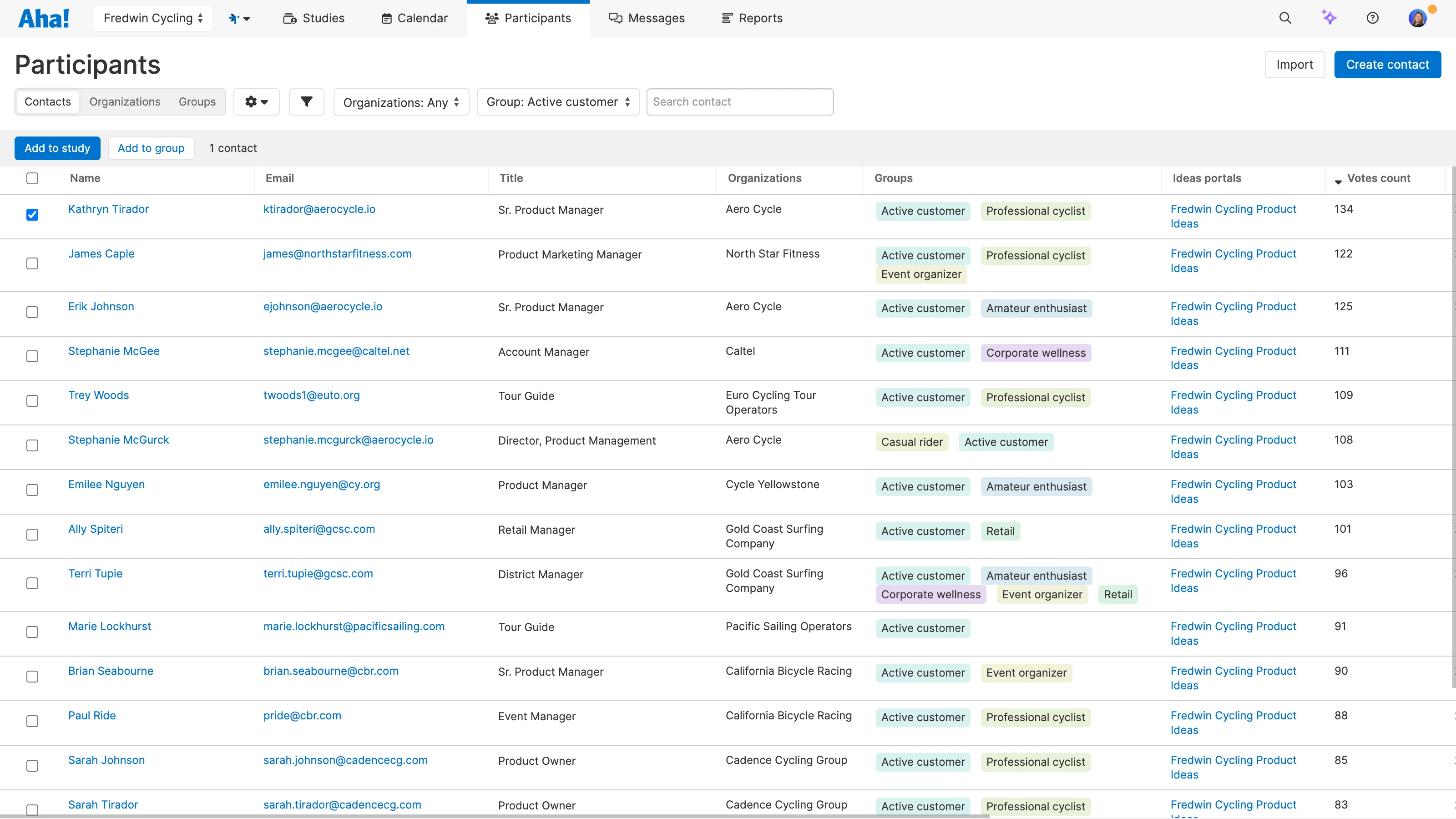
Populate your participant database with customers who like to share product feedback. Bring in existing ideas portal users — along with details like the number of ideas and votes each person has submitted. Click through to see which ideas they are interested in so you can match them to the right study.
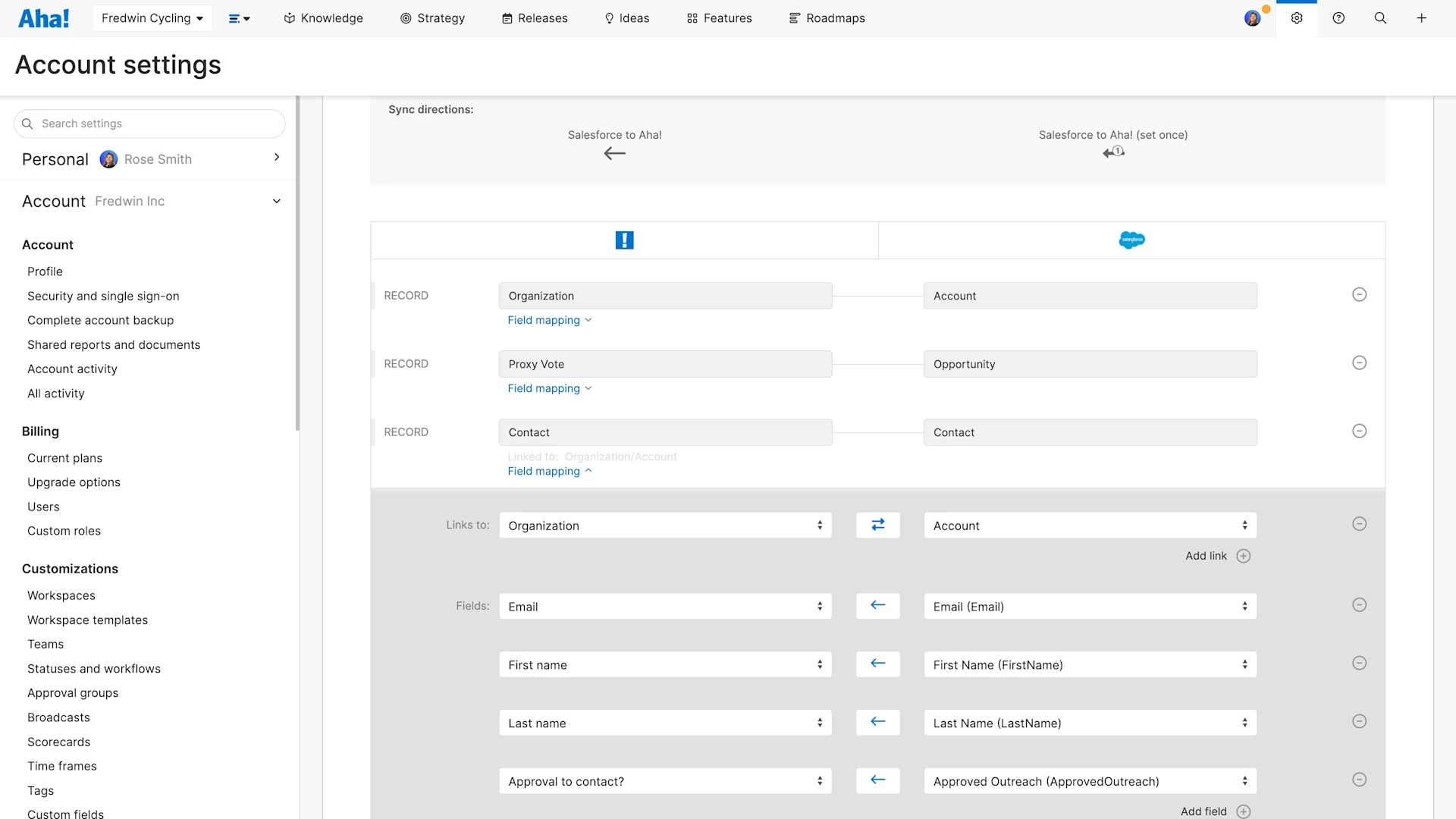
Build a healthy research pipeline. Import contacts from Salesforce — along with details like their titles, organizations, and interview approval statuses. This gives you instant access to a rich pool of potential participants. Sync interview history back to Salesforce to give customer-facing teams visibility into discovery work.
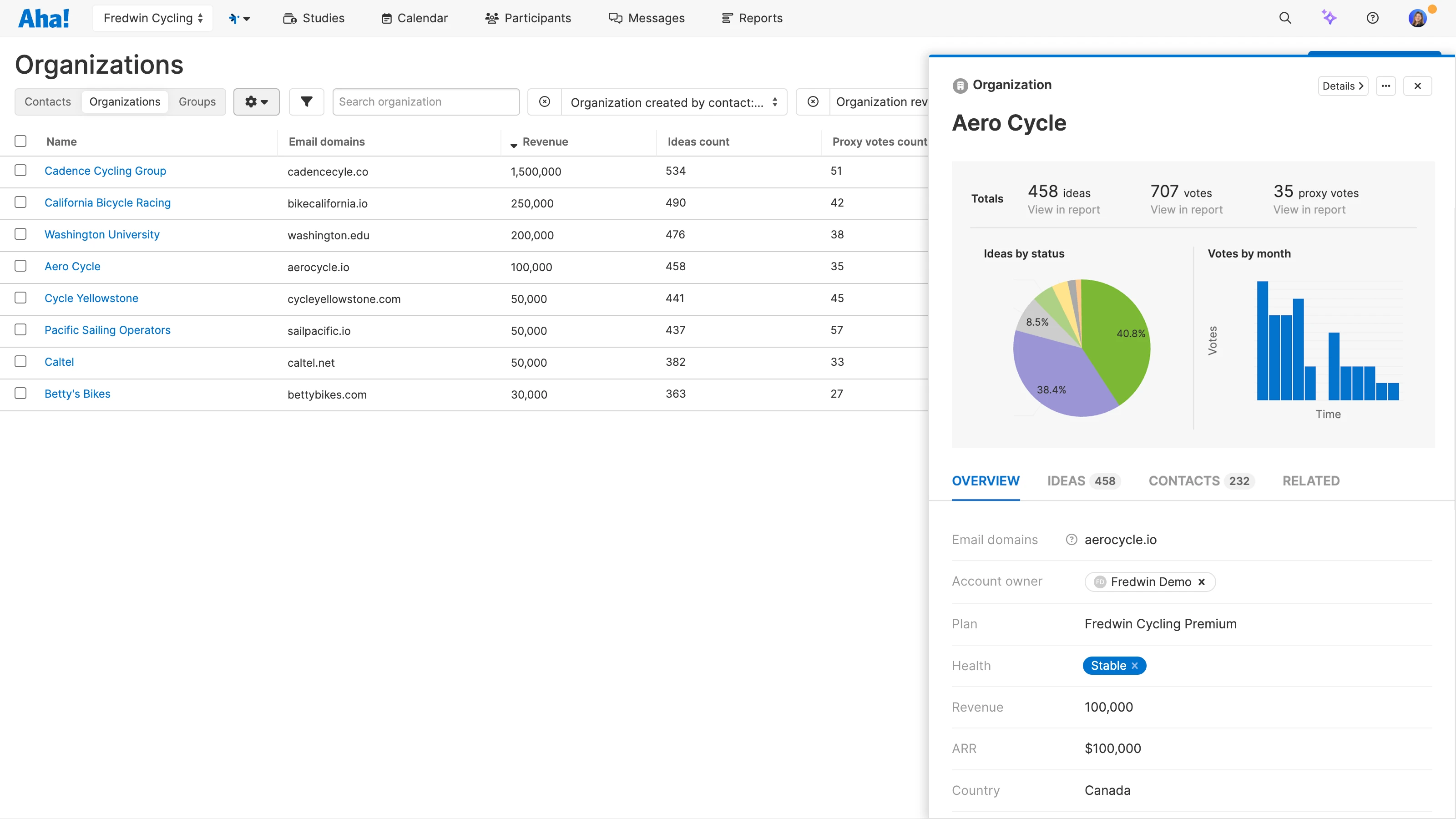
Categorize contacts in your database by company and segment. Automatically link people to the right organization based on email domain or via Salesforce integration. Create groups to target specific customer segments — such as persona, plan type, and product usage. Then, use segments to guide your outreach efforts.
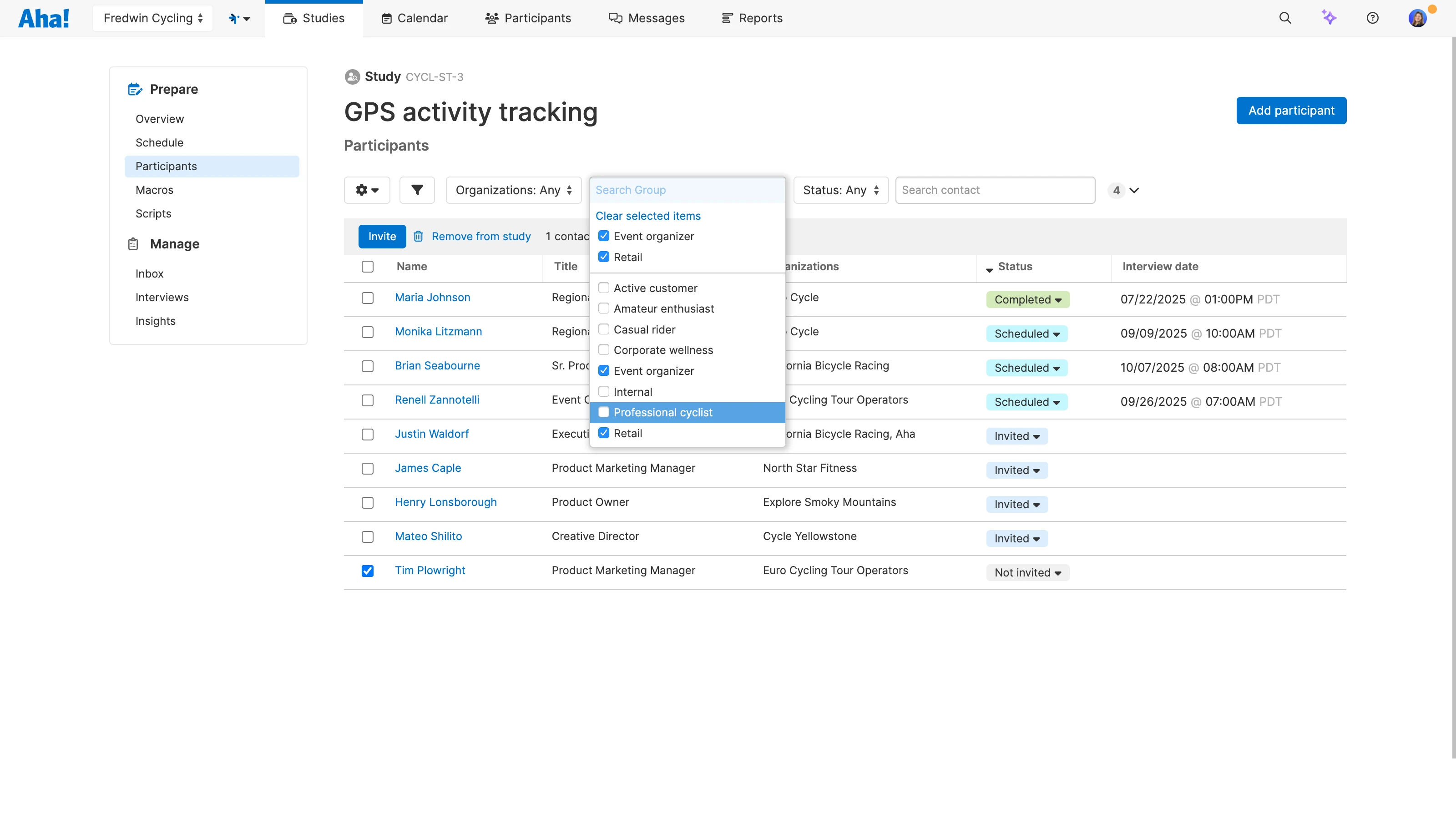
Find the most informed people to interview. Search your database, applying filters to quickly narrow your results. Add potential participants directly to a study, then send out a personal email inviting them to meet. Use a custom scheduling page so folks can select a mutually convenient time.
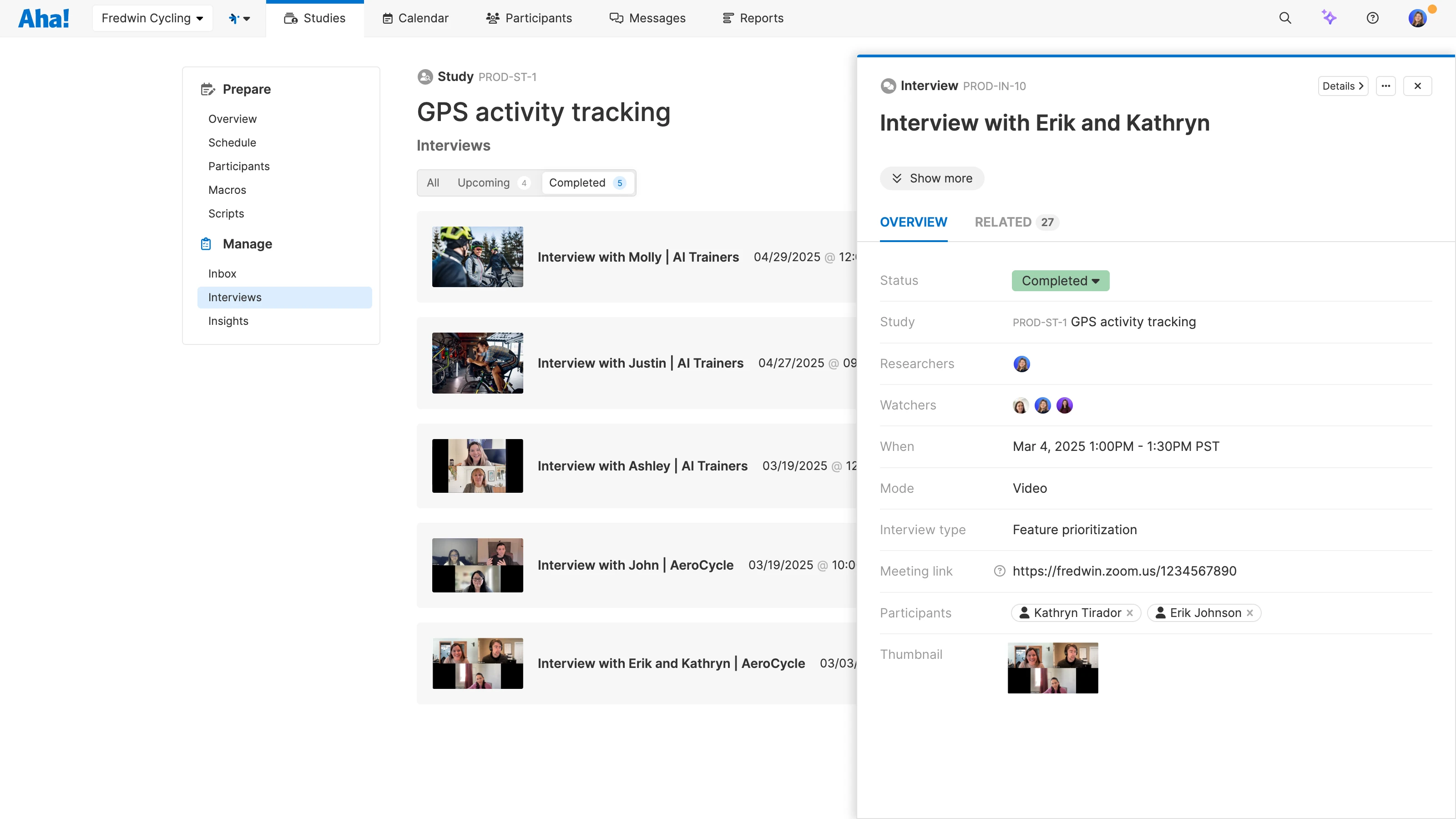
Record exactly who you met with and when. Keeping track of previous conversations helps you identify which end users to engage with based on prior interviews. Reaching out to a broad range of users — not just the most vocal ones — ensures your research efforts include a broad range of perspectives.